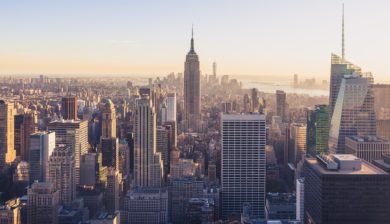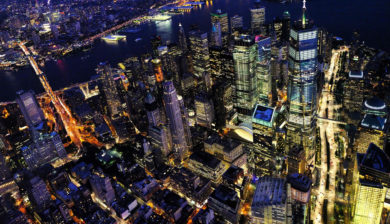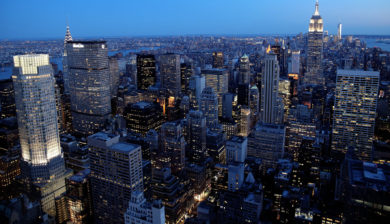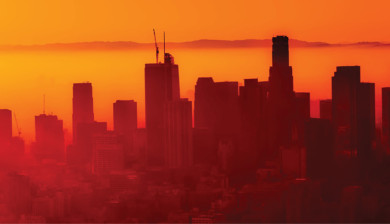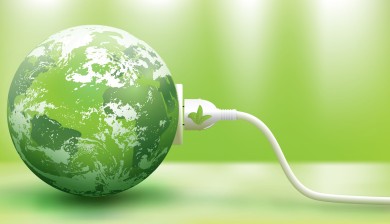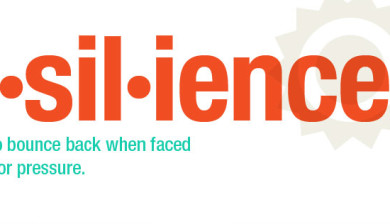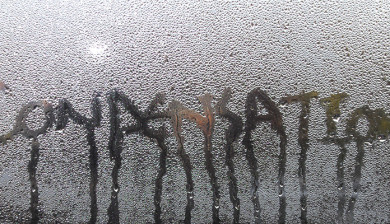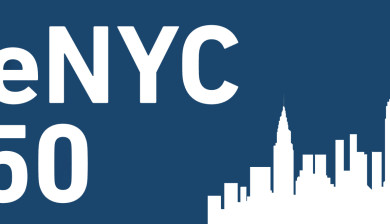A Smart Strategy for Energy Savings in New York City
If you manage or own a building built in the 1970s or before… please keep reading! Steam heat is used in approximately 82% of buildings in New York City. Most of these buildings use a natural gas fired boiler and only 10% use ConEd Steam (https://www.ny-engineers.com/blog/steam-use-in
Read MoreJune 05, 2020
0 Comment
How the New NYC Energy Conservation Code Affects Commercial Building Owners
New York City has updated its Energy Conservation Code, which mandates stricter energy and sustainability requirements for both new construction and existing commercial buildings. The new requirements went into effect on May 12, 2020 and place even greater pressure on building owners
Read MoreWindow Retrofits Can Help Building Owners Comply with NYC’s Local Law 97
Understanding Local Law 97 Building owners in New York City are under increased pressure to reduce carbon emissions or risk facing hefty financial penalties. Passed in 2019, Local Law 97 mandates that buildings over 25,000 square must meet strict greenhouse gas (GHG) emission limits b
Read MoreOctober 01, 2019
Protect Your Tenants with a Bullet Resistant Window Retrofit
On August 12, 2019 San Antonio law enforcement responded to shots fired toward the windows of an Immigration and Customs Enforcement field office. The Washington Examiner reported that the building did not have bulletproof windows and that at least one shot penetrated a window. Attack
Read MoreWindow Retrofits Help Protect Building Occupants During Extreme Weather
Heat waves during summer months are a common cause of power outages. The high power consumed by HVAC systems during extreme weather – especially in large commercial buildings – can put a significant strain on the system itself as well as local power providers. The USA Today reported t
Read MoreNew and Replacement Blast Window Methodology by Thermolite
Blast window sourcing and installation represent a unique set of challenges to building managers. Not only are these windows very expensive and disruptive to install, there are a limited number of blast window manufacturers so the design selection is limited. Thermolite has been provi
Read MoreWindows: a Key Component of Successful Deep Energy Retrofit Projects
What Is a Deep Energy Retrofit? A deep energy retrofit is a whole-building analysis and construction process that achieves energy savings reductions of 50%. While “light” energy retrofits focus only on one or two energy conservation measures, such as upgrading lighting equipment and a
Read MoreThe Importance of Windows in Energy Resilience
Defining Energy Resilience The U.S. Department of Energy defines resilience as the ability to prepare for and adapt to changing conditions and withstand and recover rapidly from disruptions, deliberate attacks and natural disasters. The term energy resilience refers to ensuring a buil
Read MoreHow Interior Window Retrofits Reduce Condensation
Condensation occurs when the temperature of the air drops to the point where humidity becomes liquid, known as the dew point. Condensation forms on windows when the surface of the glass becomes cold, forcing the humidity to convert to liquid water. The actual temperature of the dew po
Read MoreNYC to Ban Glass Facades in New Construction
NYC Mayor Bill DeBlasio made national headlines this week when he announced that the largest city in the U.S. will ban glass facades in new construction. “We are going to ban the classic glass and steel skyscrapers, which are incredibly inefficient,” DeBlasio said on MSNBC’s Morning J
Read MoreCopyright 2021, RetroWAL Curtainwall Retrofit System by Thermolite

